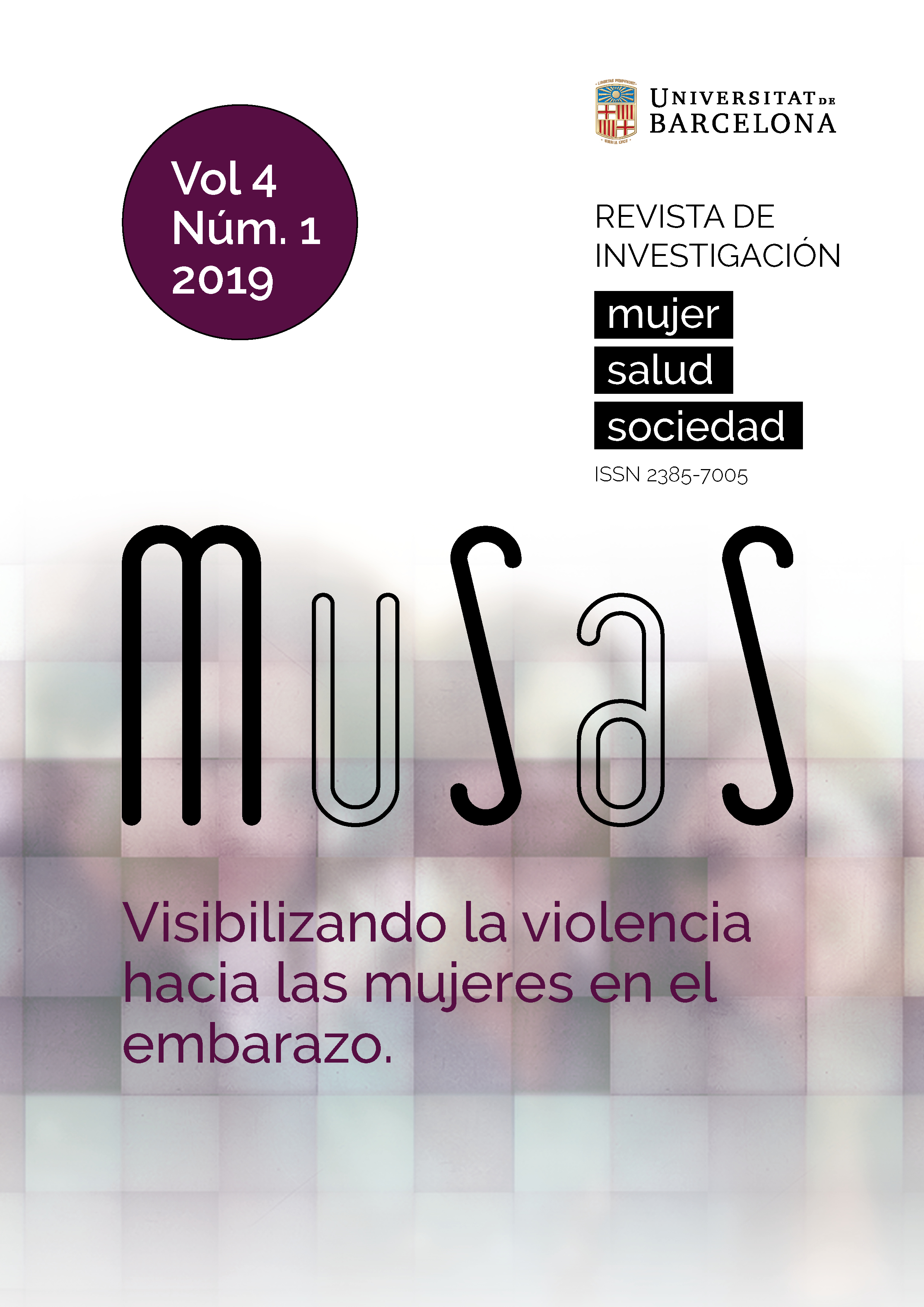Obstetric Violence in Spain, Reality or Myth? 17,000 Women Give their Opinion
DOI:
https://doi.org/10.1344/musas2019.vol4.num1.5Keywords:
patient rights, professional-patient relationship, obstetric violenceAbstract
Objective
To investigate the quality of obstetric care as perceived by women in the context of giving birth, a cesarean section or miscarriage/stillbirth in health centers in Spain, and their satisfaction with different aspects of the attention received, both human and technical.
Materials and method
Retrospective descriptive study based on an anonymous online survey about the care received during the obstetric process.
Results
A sample of 17,677 answers was obtained. Healthcare professionals were awarded an average of 6.9 points out of 10. 45.8 % of women believed that healthcare professionals did not ask for their informed consent before every procedure and 49 % did not have the opportunity to clarify doubts or express fears. 38 % perceived that they received unnecessary or potentially dangerous procedures during labor. Finally, 34 % believed they had suffered obstetric violence.
Conclusions
The birth or loss of a baby are events that leave a deep mark on the physical, psychological and emotional health of women and their families. Healthcare professionals should reflect upon the impact of our care, the need to base it on scientific evidence and the duty to respect women’s and children’s rights, even if they do not know these rights nor demand them. The results of this survey contribute to drawing up a guideline and identifying a series of fields in which obstetric attention, including treatment, can and must be improved.
Downloads
Published
Issue
Section
License
Authors publishing in this journal agree with the following terms:
- Authors hold the copyright, but MUSAS holds the right of first publication.
- Manuscripts will be disseminated with the Creative Commons CC BY-NC license, which allows sharing it with third parties as long as they recognize the authorship, the first publication right held by MUSAS and the license’s conditions






